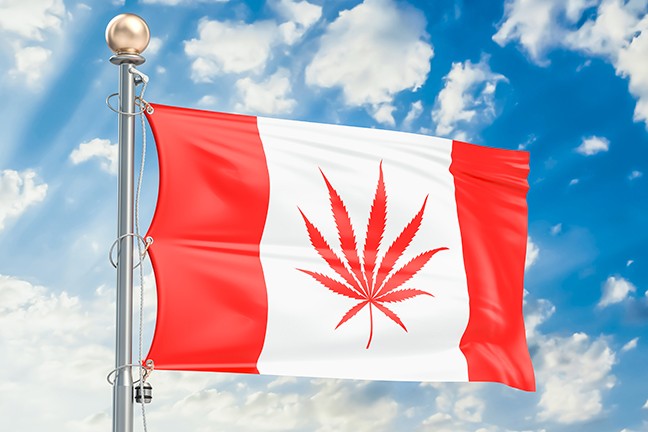Few presidential administrations have turned parody into reality as much as the Trump administration, but as Canada prepares to legalize cannabis, it seems U.S. Customs and Border Patrol have done just that.
In June, the Tucson Weekly ran a satirical column about barring Canadians from entering the U.S. on the grounds of federal law that allows them to ban a traveler for life if one is "determined to be a drug abuser."
Though the column was a tongue-in-cheek response to refugee family separations along the southern border, it seems CBP took it to heart, and now plans of excluding Canadians in the cannabis industry from entering the U.S., according to a Politico article in September.
Border officers won't stop and ask every Canadian whether they've ever used drugs, but if the dogs alert to the presence of cannabis, they may start asking questions.
Lying about it can also earn a traveler a lifetime ban, according to Todd Owen, executive assistant commissioner for the Office of Field Operations.
CBP officers will turn around any Canadian who admits to past drug use and file a report whether they enter the U.S. or not. Canadians can apply for a waiver, but the process takes months and costs $585.
For most Canadian citizens, the policy may be a minor inconvenience, and only if they've ever consumed cannabis. But the law doesn't stop at drug users, it also applies to "drug traffickers," or as Canada thinks of them, people employed and investing in the cannabis industry.
"If you work for the industry, that is grounds for inadmissibility," Owen said. "We don't recognize that as a legal business."
Given the influx of Canadian companies investing in the U.S. cannabis industry, including some that have invested in Arizona, banning businesspeople from the country may have some economic ramifications.
Toronto-based company MPX Bioceuticals has been investing in Arizona cannabis since last year and runs three Health for Life dispensaries in Mesa. They announced the acquisition of the Holistic Center in Phoenix in March.
MPX has also been expanding into Maryland, Massachusetts, Nevada and California, but the Arizona stores make up the majority of the $21.3 million in revenue they earned last year.
Though there may not be anything stopping Canadians from sending their money, not being able to visit their investments, or meet with American partners, may chill the current cannabis investment boom.
CBP didn't mention whether a "minimum investment" would warrant a ban or if investors would be eligible for waivers. Considering they've already banned Israeli investors for the same reason, it's unlikely they'll make an exception for our neighbors.
More than 30 percent of Canadians said they'd smoke cannabis if it were legal, according to CBC News in Canada. With more than 42 million same-day or overnight trips a year, according to Politico, that could mean 12.6 million fewer trips a year.
For now, a lot remains unknown about the ultimate effect the policy will have on travel or the cannabis industry, but a country with fewer Canadians or less cannabis doesn't seem like a good thing.










